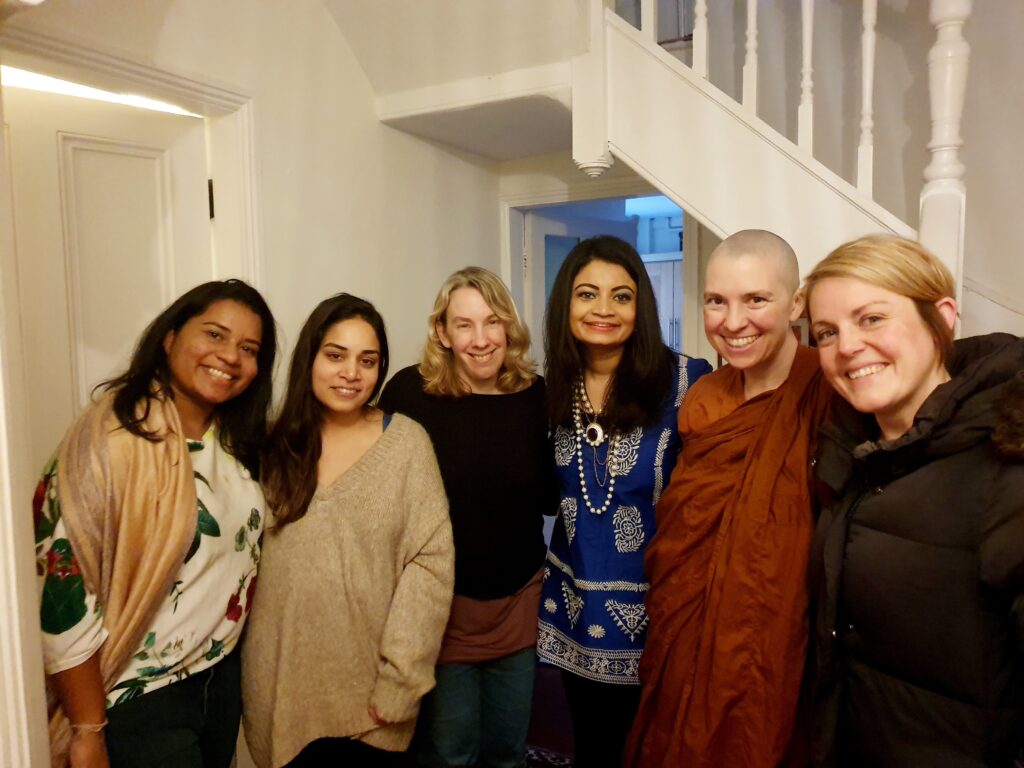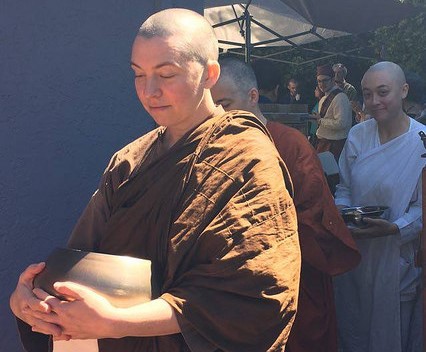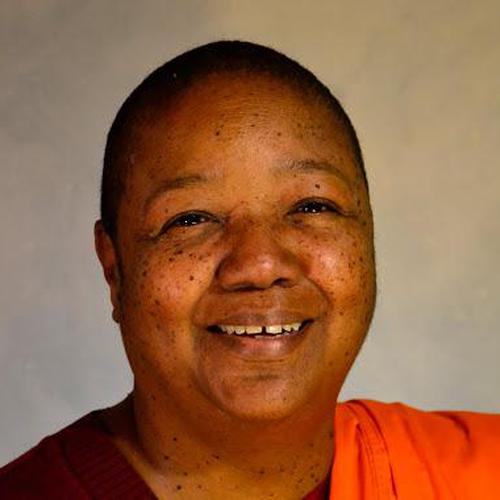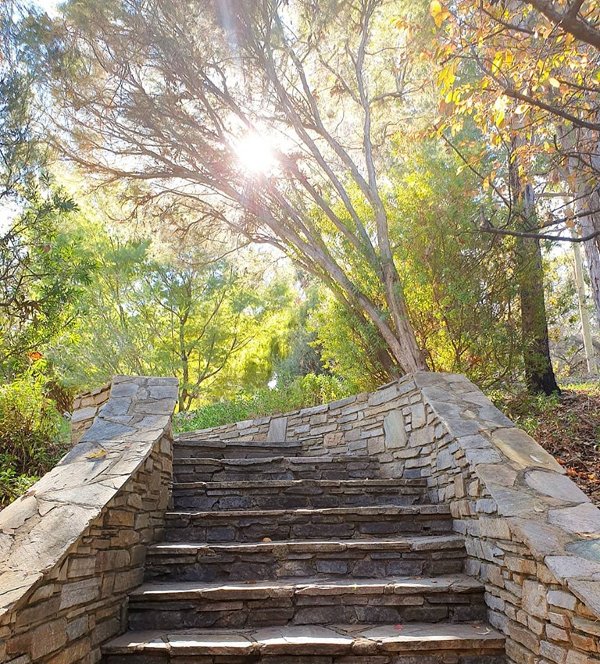
Transcription of Ajahn Brahm’s address at the meeting by Lia Lalli, edited by Ven Canda.
Sunday, 8th November 2020
Ajahn Brahm:
“I have been teaching meditation for almost fifty years now. One of the first meditation teachings I gave was when I was a twenty-two-year-old high school teacher in Devon where I taught children between the ages of eleven and eighteen. I was asked to do the morning assembly and I got permission from the school Principal to teach meditation there every day before class. I taught six hundred and fifty children anapanasati – how to meditate on the breath – and it was a wonderful thing to share. Many years later I met one of those students who told me that learning how to meditate had changed his whole life. I tell this story to emphasise how important service is. However small and insignificant we feel our service may be, it can literally change other people’s lives. Service is key to any community.
Now I will lead a short meditation to imbue a sense of peace and quiet to the meeting and as a gift to all of those who work hard looking after others.
[20 minutes meditation]
I don’t know about you, but it was hard for me to come out as I was enjoying myself and I hope you enjoyed it too! With regular meditation the practice becomes second nature, and we know exactly what to do and how to relax our bodies. Every time we teach meditation you get the message and little by little, you will know exactly what to do, just like when you learn to drive. In the beginning you need a driving instructor to make sure you don’t crash the car, but after a while you don’t need an instructor anymore; driving becomes an automatic process. You can even have a conversation with the person sitting next to you, or daydream, and still drive safely.
Learning how to meditate is a remarkably similar process. The job of a nun or a monk is to be a meditation instructor. In the beginning you need us to guide you through the various stages of meditation and then little by little you know exactly what to do, you can sit down and your mind does the meditation.
One of my favourite similes about meditation is one which I got on an aircraft from the inflight magazine, where a pilot was predicting the aircraft of the future. In this future aircraft, only two beings will be allowed in the cockpit: the pilot and a dog. The job of the pilot will be to feed the dog; the main task of the dog will be to bite the pilot if s/he touches anything. Everything about the aeroplane’s functionality will be automatic and much safer – no human will need to interfere. This is so like meditation: the more you let go, the more the mind and body know what to do. You just watch, going deeper into meditation, until it becomes an automatic process. You become an observer watching all these amazing things occurring. You realise that all these beautiful, peaceful, deep states of mind can only happen when you disappear and get out of the way.
Meditation is key to the path and I love talking about it, but today we are here to talk about the joy of service and how central and helpful service is to the Path. To emphasise this, I will tell you a story that goes back to the time when I was a young monk in Thailand and we had to make our own robes. Back then this was extremely hard work. It could take days to make a set of robes, particularly because there was no electricity. You had to cut small pieces of cloth and sew them into robes on one of those old-fashioned sewing machines, operated by a little foot pedal. You would have to get your coordination right to be able to sew in a straight line and therefore the process of sewing would take about twenty hours. Afterwards the cloth needed to be dyed and for this we would use the jackfruit tree. When jackfruit trees in the forest were dead or when a branch fell off, we would collect it and chop the tree into little chips. This was done with a machete which we had to sharpen ourselves and was quite dangerous work. Once the chips were ready for processing, we had to get water from the well. All we had were buckets and a piece of bamboo with a hook on the end. Many buckets fell in the well and were lost that way and because it was a poor monastery, if we lost a bucket, we would have to get a rope and climb into that well to rescue it! I remember going down many time to rescue buckets and sometimes there were snakes in those wells. However, no monk ever got bitten by a snake, even though they were all over the forest, as we were used to living with snakes; the monks and the snakes were kind to one another.
The water was put in a big basin with a fire underneath and when the water started boiling, we put the chips of the jackfruit tree in and boiled them over a long period of time. Through this process, the wood chips released the sap which was the dyeing agent for the robes. The dye was concentrated and when ready was put on the white cloth which was pounded quite vigorously for a long time so that the dye would be absorbed. In order to avoid streaking, the cloth had to be turned constantly. The whole process was extremely hard, and it took about three or four days of continuous work without any rest. Three monks were making their robes and after one or two days they had not slept at all, so one evening I broke the rules. Even though this was their test and I was supposed to let them make their robes themselves, I went to the dyeing shed after the evening meeting and told them to go and take a rest, I would take over that evening. They took up my offer and I carried on with their work overnight without resting myself. The bell went at 3:00AM the following morning and when I went to the morning meeting at 3:15AM I could not believe the amount of energy I had! I hadn’t had any coffee or tea but had all this energy and didn’t know where it came from! I was meditating with a straight back and with no tiredness, even though I had not slept all night, and my chanting was energized and in full force.
On the way back from alms round that morning, I confessed breaking the monastery’s rules to some monks. They told me that on this occasion, breaking the rules didn’t matter, as I had acted out of kindness. I asked them why I had so much energy despite not having slept all night and the monks told me something which I remembered – and practice to this day. Because I served and cared for others with compassion, that beautiful gift of kindness gave me “instant kammic rewards;” the rewards of energy, meaning and joy.
I use this experience as motivation to serve. I do so as much as I can at every opportunity; a lot of service for other people and projects. Not only do I serve Anukampa Bhikkhuni Project, but I also serve all over the world: in Australia, Indonesia, Malaysia and Singapore, Sri-Lanka, Hong Kong, and beyond. I am spiritual director, advisor, and patron of many institutions and my responsibilities continue to grow. People ask me why I do it – they say I shouldn’t take on any more responsibilities or service – but I believe that one can always do some more because beautiful giving is energizing. It makes one’s meditation glisten, it imparts power, joy and stillness. That is the reason why many of you have done lots of service already and continue to serve, in small and big ways. You are all important to this project.

Maybe you don’t realise just how few really good monasteries for women there are in this world. There are not many at all – and you are building one in England! There is a long way to go, but so much has been done so far. There will be a time when you wake up one morning and you will see, it is there! It’s happened! I have been in Australia almost forty years and sometimes when I get up in the morning and get out of my cave and look at the monastery I helped to build and which I live in, and I can’t believe it’s there! I ask myself how it happened, and it was because of all the wonderful service and kindness over long periods of time. They say that when you plant a tree you may never be there to see it in its maturity, but your children and grandchildren will, and that’s enough. This beautiful service which you are giving to our world in enough, in and of itself. Just like planting a tree, getting involved in creating a wonderful Anukampa Bhikkhuni Monastery gives rise to so much joy, because you can see it in your mind and can almost visualise how in the future it won’t be just one nun living in a house in Oxford, but it will be the opportunity for many women to live the Buddhist monastic life to its fullness. When you see all these bhikkhunis in a beautiful monastery which you are responsible for – something which you have done in this life, which you’ve served and given to – it will bring you amazing meditations.
Before rounding up the talk, I’d like to tell you one last story about Visakha. Visakha was an amazing woman who was the chief female lay disciple of the Buddha and at the beginning of the rains retreat she asked the Buddha for a special privilege. She asked if she could be the one to offer cloth to monks and nuns who meditated outside during vassa, to give monastics their first meal when they arrived at Savatthi and to help them out if they were sick. The Buddha told her that he couldn’t give all that responsibility to her alone, as other people wanted to give and serve too. He asked her why she wanted him to give her all this opportunity. And then this amazing wise woman answered “If I am given this privilege, then when any of the nuns or monks staying at this monastery for the rains retreat experience these deep meditations called jhana, any stage of enlightenment, or even get free from the bondage of Samsara, I will know that I must have given them a robe, fed them, or served them in whatever way I could! When I think of that I will get so much joy – the beautiful joy and inspiration deriving from having helped someone else on the path to liberation. With that joy, my mediation will get so deep, peaceful and insightful that maybe I will also break through to the jhanas and the liberating insights!”
When I read this, I was so impressed with Visakha’s answer that I now repeat it to as many people as I can, because it sums up the reason we serve. The Buddha realised from this answer that Visakha understood an important part of the path: it is not just about going into solitude for years at a time, but it’s a balance using the inspiration of our good kamma and our service. By harnessing that inspiration, the mind gets incredibly powerful and still.
What is service other than letting go of what we want and what we need, for something which is much more beautiful? By serving Anukampa Bhikkhuni Project you will be doing something remarkable for women who haven’t had much of a chance in Theravada Buddhism or in any other type of Buddhism for that matter. The overwhelming lack of nun’s monasteries has made it near impossible for them to have a chance to shine and have their place to teach. Venerable Canda is a wonderful teacher and to listen to a bhikkhuni give such a good talk, to hear the depth of kindness, inspiration and beauty in her teaching – to hear the Dhamma explained by someone who is actually living it to the best of her ability – is incredibly inspiring.
Maybe there can be other women who can join her and make something really inspiring in the UK. Nowadays when we look for images, for people who really inspire us in our home country, who can we look to? Who – just by their lifestyle, example, care, and their teaching – can really make us feel that this life has a lot of meaning? I doubt that the British political elite can be a source of inspiration. However, I’m going to mention someone who has been a great source of inspiration recently: the newly elected Vice President of the USA, Kamala Harris, who, being a woman, born to an Indian mother and black Jamaican father and raised in the USA, had everything stacked up against her. Despite this, she managed to become the Vice President of the United States. So, everything is possible!
I too have come up against barriers. Sometimes people feel that barriers are too difficult to overcome. I believe that through service, barriers can be broken and things can be changed. This gives our lives meaning and when you get old, you can look back on what you have done, achieved and been part of and this will be a great reason for joy. If I were living in England as a lay person, I would get involved in Anukampa Bhikkhuni Project simply because it is unique and amazing. The Buddha said it is good kamma – and I can feel it is good kamma – so let’s make it happen!
Even though it is hard work, it is worth it. When you serve like each one of you have, in large ways and small ways, it is valued by others. Not only does the organisation value you, but you should also value yourselves and your goodness! When you meditate you should practice caganussati; meditation on your goodness, generosity and giving of time; of being there for somebody. When you’ve done some good work please reflect on it, bear it in mind. You have done great service, enabling Buddhism to rise to its heights by strengthening it for women and bhikkhunis. This weekend in Perth we had nine bhikkhunis come to our city centre. Nine bhikkhunis and four monks (bhikkhus). The lay people were delighted to see so many monks and nuns walking together on alms round in order of seniority – not just the monks in the front and the women in the back, none of that stuff (!) – because it was inspiring. It is making a difference in people’s lives.
Of course, it is not just me who makes these things happen but everyone else who helps and serves who makes this possible. Inspiring acts do not just happen through kindness; there is a word from Kamala Harris’s acceptance speech that stuck in my mind: “Audacity.” Just like Joe Biden had the audacity to nominate a black woman as vice president, I had the audacity to ordain women as bhikkhunis, the audacity to put them there in front. This word emphasises how ground-breaking and necessary some actions are at times. It needs to be done and we are going to do it, to make it happen. That is where the joy and the bliss of service come up – not just any old service, but serving a marvellous, inspiring cause which will change so many people’s lives, especially in the UK but also in the rest of the world. We did it first in Australia; we now have a wonderful nun’s monastery with so many nuns, fully ordained… and now in the UK please let’s make it happen!”
[Ven Canda now invites everyone to introduce themselves and the group discuss many ideas and ways of taking things forward with Anukampa]
Last meditation together before saying goodbye (Ajahn Brahm):
“Whatever is right in front of your mind in this moment, you always must add compassion to it, kindness. I have been impressed by all the kindness of the people who are here this morning. And that kindness and stillness together create a powerful force of innovation, growth and harmony. So, we start with harmony with this moment, then harmony with our friends and harmony with all our enemies. They are not enemies anymore; they are all our teachers. We embrace all things with kindness and then we find we do have energy to serve, inspiration to help and beautiful warmth in our heart. We understand the meaning of our lives: to serve, to give, to be free.
Now I’ll be quiet for a minute and end with a blessing for you all.”
4th July – 4th October 2020
From Saturday 4th July until Sunday 4th October Ven Canda will be on a three month silent retreat. This will be the first time in history that any Theravada Bhikkhuni is spending the vassa (traditional monastic “rains retreat”) supported as a bhikkhuni in a designated bhikkhuni dwelling in the UK.
The set up is the result of over four years of dedicated hard work and will offer enormous potential for guarding the five senses, continuous Kindfulness in all activities, contentment and physical seclusion ~ the foundations for deep meditation practice.
We hope that knowing Ven Canda is taking such steps in the Dhamma will be of great inspiration and encourage you in your own practice.
We look forward to seeing you again in October to share insights from this special practice period, whether in person of online.
In the meantime, to support you on your journey, you can find many Dhamma teachings from Ajahn Brahm, Ven Canda, Ajahn Brahmali and more on our Youtube channel here.

We are living in extraordinary times. As we are in our various phases of unlocking lock-down, depending on our geographical location and personal situation, we are also entering the fourth week of the largest anti-racist movement in living memory. Large and overwhelmingly peaceful demonstrations are happening across three continents, in the wake of the tragic murder of George Floyd ~ and hopes run high for systemic change. Whether we are involved in activism, policy change, anti-racism training or examination of our personal relationship with racism and race, a capacity to listen to ourselves and each other with a patient, open heart seems key to lasting change.
A recent article in Tricycle Magazine notes that the Buddha was adept at using skillful and persistent questioning to address and unravel the wrong views underlying prejudice and supremacist ideology. In the Assalayana Sutta (M.N. 93), the Buddha brings about a change in a brahmin student through activating that student’s own capacity for intelligent reflection.
When young Assalayana declares to the Buddha: “Brahmins are the highest caste, those of any other caste are inferior; brahmins are the fairest, those of any other are dark; only brahmins are purified, not non-brahmins…,” the Buddha counter questions him incisively and with great humour, pointing (out among many things) that people from all castes are born in the same way, bathe and get clean the same way (!) experience the same kammic results of ethical action, and have the capacity to develop the immeasurable liberation of mind through loving kindness.
Venerable Pannavati Bhikkhuni

Venerable Pannavati, a black bhikkhuni ordained in the Theravada and Chan traditions, gave one of the most healing, inspiring and deeply compassionate talks I have heard on the need for self-honesty as a starting point in the conversation around race and unity in this outstanding Dhamma talk hosted by the Tilorien Sangha on June 19th. In it she says:
“It doesn’t matter if you don’t like where you are, what’s rising up in you,or what you see ~ it takes a radical kind of honesty to find yourself. Every time I’m looking at someone else, pointing my finger, I’m seeing where (in some ways) I’m just like them. In some ways I’m thinking certain thoughts that are unreasonable, that are hostile, that are cruel; that don’t speak for what I say I believe in and I embrace….It’s not about “Who are they?” ~ it’s about “Who am I?” What do I bring to this pivotal moment in time? What wisdom can I share [and embody] from the Dhamma that will elevate and lift us; that will point us where we want to be as a society, as a people, as a species? That is the question. Who do I choose to be in this world?“
You can read more about this incredible bhikkhuni here.
“Monk on a Motorbike,” as Danny Hill introduces himself, spends a good hour with Venerable Canda, discussing Dhamma, Venerable Canda’s path, women’s ordination in Theravada Buddhism, and much more.
Listen with a cuppa in installments if you wish! The whole podcast can be found here:
This newsletter shares the progression of our journey towards our Forest Monastery, what is needed to proceed and the joyful beginnings we have already made. Sign up for Ajahn Brahm’s talks if you haven’t done so already; join me (Ven Canda) for a winter metta retreat; and find my latest teachings (“Compassion and The Inner Tyrant” and more) and your free book, below, to “Let The Light Shine” a little more brightly in your heart and on your day.

Anukampa Events SEE LATEST >


